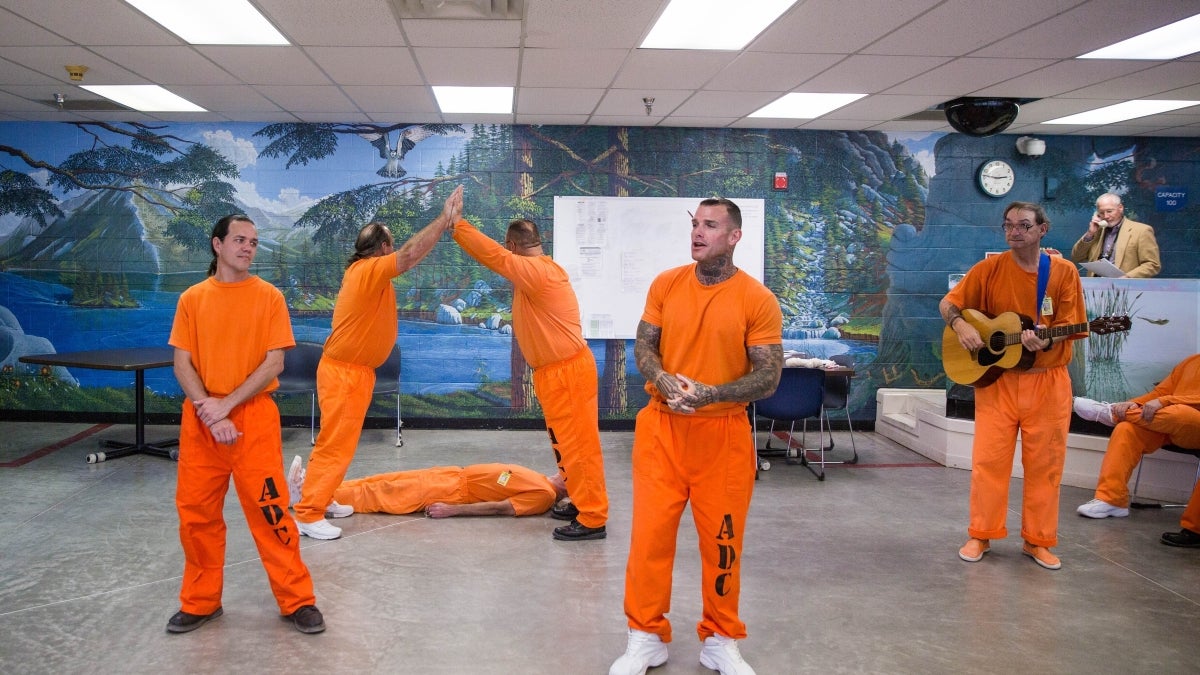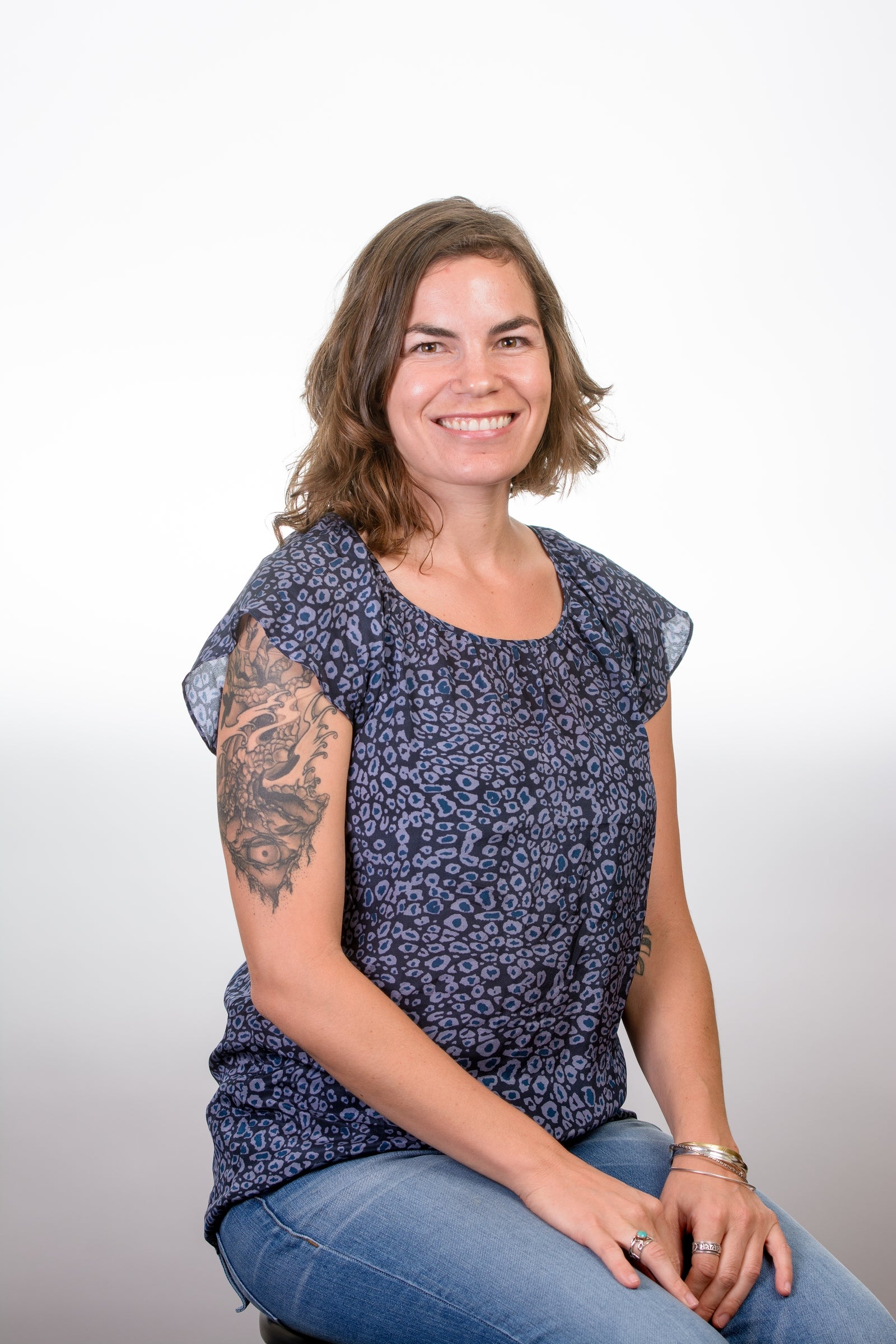Editor's note: This is part of a series of profiles for spring 2016 commencement. See the rest here.
Rivka Rocchio is a theater-maker and educator interested in using theater to engage communities in cross-cultural dialogue. She received a bachelor's in theater education and writing, literature and publishing from Emerson College, and has taught theater and English in prisons, high schools and middle schools. She has also worked as a community-based artist with the Peace Corps in Samoa and Liberia.
In fall 2015, Rocchio’s applied project, "Theatre Across Prison Walls," received a Pollination Project grant and was featured on the Huffington Post. The theater workshop and residency program brought student inmates at the ASPC-Eyman State Prison in Florence, Arizona, together with students from ASU. The resulting workshops and performances explored, in Rocchio’s words, “the intersections of social justice, incarceration and the prison industrial complex.” Rocchio also received the MLK Jr. Student Servant Leadership Award for her work with inmate populations in Arizona.
As a teaching artist with Childsplay, a renowned local theater company, Rocchio once revealed the terrible joke she says she tells the most: "What kind of socks does a pirate wear? Arr-gyle."
Rocchio, who hails from Mount Vernon, Washington, graduates this spring with a MFA in Theatre for Youth from the School of Film, Dance and Theatre in Arizona State University's Herberger Institute for Design and the Arts.
Question: What was your “aha” moment, when you realized you wanted to study the field you majored in?
Answer: I realized I wanted to get an advanced degree in Theatre for Youth when I was teaching in Samoa with the Peace Corps. I had been partnering with organizations in the community and struggling to articulate ways in which theater and the arts could be a more effective and powerful way of working. I knew I needed to develop a vocabulary and critical pedagogy that suited me as an artist and yet remained community inclusive.
Q: What’s something you learned while at ASU — in the classroom or otherwise — that surprised you, that changed your perspective?
A: I’ve been surprised in the classroom by the ways my teaching has grown to include the perspectives of non-traditional students, first-generation students and students who have been systemically excluded from “ivory tower” academics. I am a better student and teacher because of the communities ASU has granted me access to.
Q: Why did you choose ASU?
A: I chose ASU because of the success of graduate students. I looked at who was a changemaker in the field, and reading bios I kept seeing ASU’s influence. Also, ASU’s reputation as an inclusive and diverse school enticed me. I wanted to be a part of a university that looked like the surrounding population.
Q: What’s the best piece of advice you’d give to those still in school?
A: I would encourage those still in school to fail. As Beckett writes, “Fail. Fail again. Fail better.” School is an environment to take creative risks and learn from them. Once you are outside academia, failure has different consequences. I have learned WAY more from the projects that didn’t work out as planned, the grants I didn’t get, the partnerships that never happened, than from all the “successes” I’ve achieved.
Q: What was your favorite spot on campus, whether for studying, meeting friends or just thinking about life?
A: The “Secret Garden” between Dixie-Gammage and West Hall was a place I frequented to sit with a coffee and a book and think over the advice and guidance of my mentors.
Q: What are your plans after graduation?
A: I am pursuing a career in higher education.
Q: If someone gave you $40 million to solve one problem on our planet, what would you tackle?
A: I would use arts and theater to address issues surrounding incarceration. I don’t just mean the actual caging of humans that still happens, but the systems of oppression, policing, racism and justice that are all too present for some members of U.S. culture. Essentially, this would tie in to communities and community health — which the arts are crucial in maintaining.
Top photo: As part of the Theatre Across Prison Walls program, inmates rehearse before the start of their performance at Eyman State Prison in Florence on Nov. 25, 2015. The performance of "Free Drama" was performed for Cook Unit inmates, prison administrators and ASU faculty. Photo by Deanna Dent/ASU Now
More Arts, humanities and education

Professor's acoustic research repurposed into relaxing listening sessions for all
Garth Paine, an expert in acoustic ecology, has spent years traveling the world to collect specialized audio recordings.He’s been to Costa Rica and to Ecuador as part of his research into innovative…

Filmmaker Spike Lee’s storytelling skills captivate audience at ASU event
Legendary filmmaker Spike Lee was this year’s distinguished speaker for the Delivering Democracy 2025 dialogue — a free event organized by Arizona State University’s Center for the Study of…

Grammy-winning producer Timbaland to headline ASU music industry conference
The Arizona State University Popular Music program’s Music Industry Career Conference is set to provide students with exposure to exciting career opportunities, music professionals and industry…



